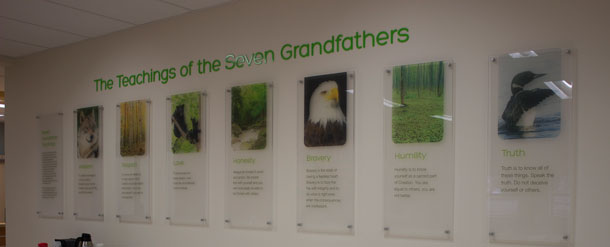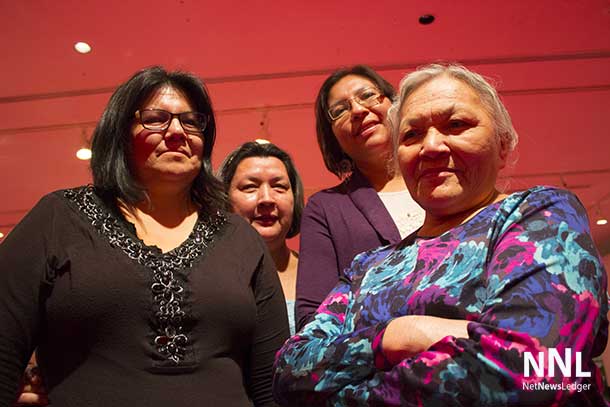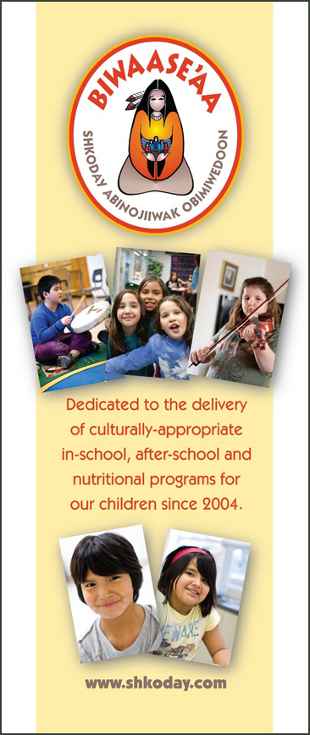
School Success Linked to Biwaase’aa School Programs
THUNDER BAY – Shkoday Abinojiiwak Obimiwedoon is pleased to announce the release of the research report A Holistic Study of the Biwaase’aa Program on Participating Students in Thunder Bay.
This report summarizes the results of a research study of a unique Aboriginal In-School, After-School and Food Security program offered at 7 Thunder Bay schools in 2012-13. Biwaase’aa (BI-WAH-SAY-AH) is designed to respond to the cultural needs of Aboriginal students and creates mentoring relationships with culturally knowledgeable Youth Outreach Workers based in each participating school.
The research study followed a group of Aboriginal Biwaase’aa Grade 6 students through 2 or 3 years of their schooling to determine if there was a relationship between attending Biwaase’aa and an increase or decrease in a number of academic indicators generally linked to school success.
The final report demonstrates an emergent relationship between positive changes in the following academic indicators of Aboriginal school success – language/mathematics scores, instances of being late and/or absent, as well as behavioural referrals while attending the Biwaase’aa Program.
Based on the findings of this report the authors, Dr. Julian Kitchen, Dr. John Hodson and Ms Erin Hodson, recommend a significant scaling-up of Biwaase’aa that includes:
• Increased funding from federal, province, municipal, district, school boards and charitable sources to allow for expansion into senior elementary and high schools with high percentages of Aboriginal students in Thunder Bay.
• The development of Biwaase’aa programming designed for senior elementary and high school aged students.
• As well as a 5-year longitudinal study that tracks the results of that scaling-up on Aboriginal school success.
“Biwaase’aa is an Aboriginal social innovation operating in a number of Ontario provincially funded schools that demonstrate a link between culturally responsive and relational programming and the school success of Aboriginal students. Biwaase’aa programming is a reflection of all the international research literature on how Aboriginal school success can be enhanced,” said Dr. Kitchen. Dr. Hodson added, “Biwaase’aa works because a talented and dedicated group of Youth Outreach Workers create a cultural presence in schools that otherwise would not exist. All students, Aboriginal, non-Aboriginal, as well as families and teachers benefit from the Biwaase’aa presence.”
Tammy Bobyk, Executive Director of Shkoday said, “the evidence is clear, culturally responsive programming keeps Aboriginal students in school and enhances school success. Biwaase’aa is a relatively small upstream investment that offsets a huge potential downstream cost to social services in this province. The business case for expanding Biwaase’aa is clear.”
For a copy of the full report, A Holistic Study of the Biwaase’aa Program on Participating Students in Thunder Bay visit: www.shkoday.com









